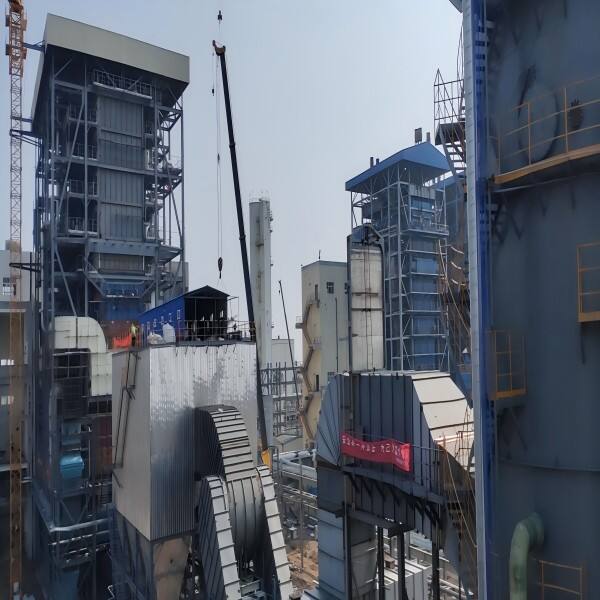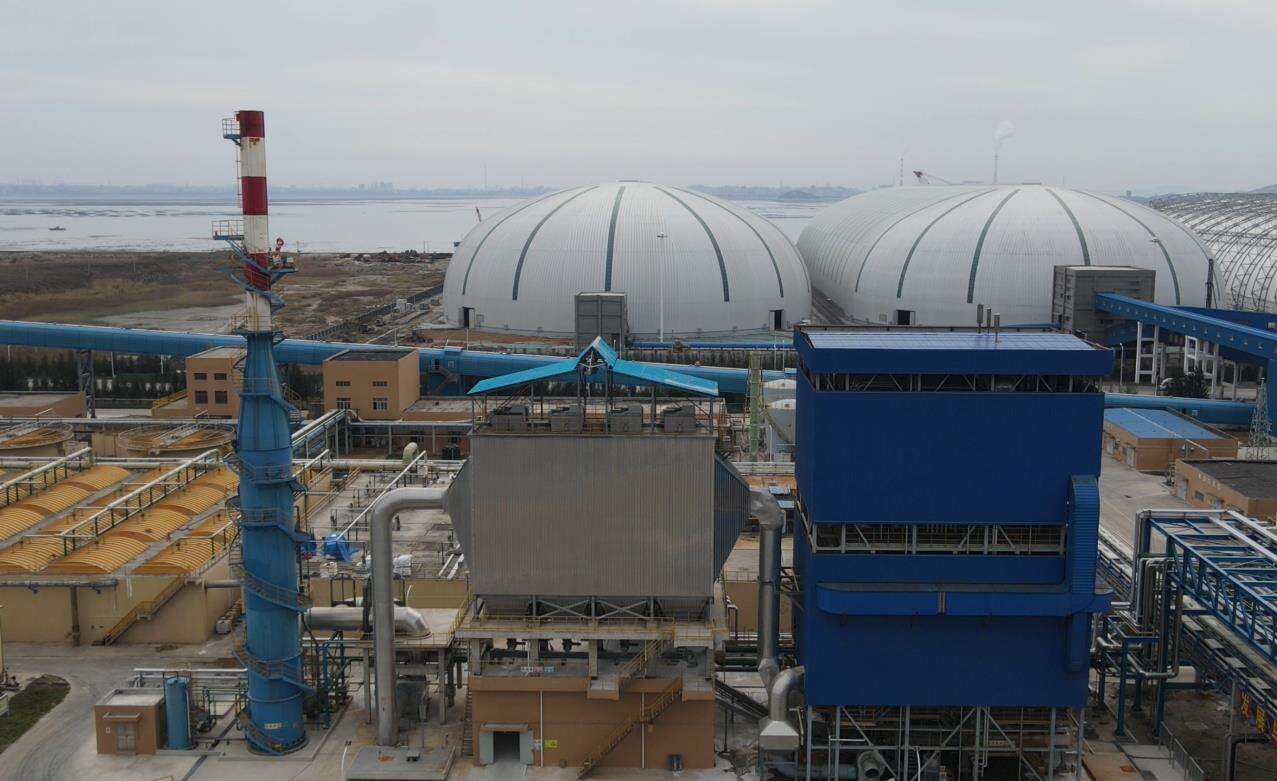Maximizing Energy Output from Organic Fuel Sources
Biomass boilers have emerged as highly efficient solutions for converting organic materials into usable heat energy while minimizing waste. These specialized systems achieve superior fuel efficiency through advanced combustion technology that extracts maximum energy from wood chips, pellets, agricultural residues, and other biomass fuels. The efficiency of a biomass boiler stems from its ability to completely combust fuel at optimal temperatures while recovering heat that would otherwise escape through flue gases. Modern biomass boiler designs incorporate features like programmable air intake controls, heat exchangers, and automated fuel feeding systems that work in harmony to boost performance. Unlike traditional wood-burning systems that may operate at 40-50% efficiency, contemporary biomass boilers can achieve 85-90% fuel efficiency under ideal conditions. This dramatic improvement makes biomass boilers increasingly attractive for commercial, industrial, and municipal heating applications seeking sustainable energy solutions.
Advanced Combustion Technology
Optimized Airflow Management
Biomass boilers maximize fuel efficiency through precisely controlled air supply systems that ensure complete combustion without excess air dilution. Primary and secondary air intakes work in tandem to maintain the ideal oxygen balance throughout the combustion chamber. The biomass boiler's automated dampers adjust airflows in real-time based on fuel quality, moisture content, and burn rates. This precise air management prevents the energy waste associated with incomplete combustion while minimizing heat loss through unnecessary flue gas production. Some advanced biomass boiler models incorporate staged combustion that burns volatile gases separately from solid fuel components for maximum energy extraction. The integration of oxygen sensors and microprocessor controls allows continuous optimization of the air-to-fuel ratio as operating conditions change.
High-Temperature Gasification
Leading biomass boiler designs employ gasification technology that converts solid fuel into combustible gas at temperatures exceeding 1000°C. This two-stage process first thermochemically breaks down biomass into synthetic gas, then burns the gas separately for cleaner, more efficient energy release. The biomass boiler's gasification chamber operates with limited oxygen to produce maximum volatile gases while minimizing ash formation. This approach allows the biomass boiler to extract significantly more energy from each unit of fuel compared to traditional direct combustion methods. Gasification biomass boilers achieve more complete fuel utilization by burning nearly all combustible material, leaving only minimal ash residue. The high-temperature operation also ensures thorough destruction of potentially harmful emissions, making these systems both efficient and environmentally responsible.

Heat Recovery Systems
Flue Gas Condensation Technology
Modern biomass boilers dramatically improve efficiency by capturing latent heat from water vapor in exhaust gases that would otherwise escape up the chimney. Condensing biomass boiler designs use specially engineered heat exchangers that cool flue gases below their dew point, recovering this additional energy. The biomass boiler transfers this recovered heat to the incoming water stream, boosting system efficiency by 10-15% compared to non-condensing models. Advanced materials in condensing biomass boilers withstand the corrosive condensate while maintaining long-term heat transfer performance. This technology works particularly well with low-temperature heating systems where the cooler return water maximizes condensation potential. The combination of primary combustion efficiency and secondary heat recovery makes condensing biomass boilers among the most fuel-efficient options available.
Thermal Storage Integration
High-efficiency biomass boiler systems often incorporate thermal storage buffers that allow optimal combustion conditions regardless of immediate heat demand. The biomass boiler can operate at its most efficient steady-state output, storing excess heat in insulated water tanks for later use. This approach prevents the efficiency losses associated with frequent start-stop cycling or low-fire operation that plague conventional systems. Thermal storage enables the biomass boiler to burn fuel only when combustion conditions are ideal, rather than responding to fluctuating demand in real-time. Some large-scale biomass boiler installations use stratified thermal storage tanks that maintain temperature layers for different heating applications. This strategic decoupling of production from consumption represents a major advancement in overall biomass boiler system efficiency.
Fuel Flexibility and Preparation
Moisture Content Optimization
Biomass boilers achieve peak efficiency when burning fuel with properly managed moisture levels, typically between 10-20% for most wood-based fuels. Advanced systems can automatically adjust combustion parameters to compensate for varying fuel moisture, maintaining efficiency across different batches. Some biomass boiler installations include on-site fuel drying systems that use waste heat to precondition feedstock before combustion. The relationship between fuel moisture and biomass boiler efficiency follows a clear curve - each percentage point reduction in excess moisture translates directly to improved heat output. Professional biomass boiler operators monitor fuel moisture closely and often blend different feedstock to maintain the ideal balance for efficient combustion. This attention to fuel preparation separates high-performance biomass boiler operations from basic wood-burning systems.
Uniform Fuel Sizing
Consistent fuel particle size significantly impacts biomass boiler efficiency by ensuring even combustion and complete burnout. Modern biomass boilers work best with precisely manufactured pellets or uniformly chipped wood that promotes proper air circulation. The biomass boiler's feeding system can handle fuel more reliably when particle sizes fall within a narrow range, preventing bridging or uneven distribution. Some advanced biomass boiler installations include on-site grinding or screening equipment to process diverse feedstock into optimal sizes. Uniform fuel sizing allows the biomass boiler to maintain steady combustion with minimal excess air requirements, directly boosting efficiency. This operational consistency also reduces maintenance requirements and extends the biomass boiler's service life by preventing uneven thermal stresses.
Automated Control Systems
Real-Time Performance Monitoring
State-of-the-art biomass boilers incorporate comprehensive sensor arrays and control systems that continuously optimize combustion parameters. The biomass boiler's brain constantly analyzes oxygen levels, flue gas temperatures, pressure differentials, and other key indicators to maximize efficiency. These automated controls make micro-adjustments to air supplies, fuel feed rates, and heat exchanger flows that would be impossible to replicate manually. Modern biomass boiler controllers can detect efficiency trends over time and suggest maintenance interventions before performance degrades significantly. Some systems even provide remote monitoring capabilities that allow technicians to assess biomass boiler performance and troubleshoot issues without site visits. This level of automation ensures the biomass boiler operates at peak efficiency around the clock with minimal human intervention.
Adaptive Combustion Algorithms
The most advanced biomass boilers employ self-learning control systems that adapt to varying fuel qualities and operating conditions. These intelligent systems build performance models over time, recognizing how different fuel blends and demand patterns affect efficiency. The biomass boiler's computer can then predict optimal settings for anticipated conditions rather than simply reacting to changes. Adaptive controls in premium biomass boilers compensate for gradual system changes like heat exchanger fouling or sensor drift that might otherwise reduce efficiency. Some biomass boiler algorithms even incorporate weather forecasts to anticipate heating demand changes and pre-adjust operations accordingly. This predictive capability represents the cutting edge in biomass boiler efficiency optimization, often delivering 3-5% additional fuel savings compared to standard control systems.
System Design Innovations
Modular Heat Exchange Surfaces
Innovative biomass boiler designs feature configurable heat exchanger arrangements that maintain efficiency across varying load conditions. These systems can activate or bypass certain heat exchange modules based on real-time demand, ensuring optimal flue gas temperatures. The biomass boiler maintains high efficiency whether operating at 30% or 100% of capacity by matching heat transfer surface to current output needs. Some modular designs allow easy cleaning of individual heat exchanger sections without full system shutdown, maintaining consistent efficiency over time. This flexibility makes modular biomass boilers particularly suitable for applications with significant seasonal or daily load variations where fixed designs might sacrifice efficiency.
Integrated Emission Control
Modern biomass boilers incorporate emission control technologies that actually enhance fuel efficiency rather than compromising it. Advanced multi-cyclone separators and electrostatic precipitators remove particulates while minimizing backpressure that could reduce efficiency. Some biomass boiler systems use flue gas recirculation to lower combustion temperatures enough to reduce NOx formation while maintaining complete fuel burnout. These integrated approaches demonstrate how environmental performance and fuel efficiency can work synergistically in well-designed biomass boiler systems. The cleanest-burning biomass boilers often prove to be the most efficient as well, since complete combustion leaves little energy trapped in unburned pollutants or excess air.
FAQ
How much can a high-efficiency biomass boiler reduce fuel costs?
Compared to traditional wood boilers, modern biomass boilers can achieve 30-40% fuel savings through superior combustion and heat recovery technologies.
What maintenance practices optimize biomass boiler efficiency?
Regular heat exchanger cleaning, gasket inspections, and combustion tuning maintain peak biomass boiler efficiency year after year.
Can biomass boilers maintain efficiency with different fuel types?
Advanced models adapt to various biomass fuels, though highest efficiency comes with consistent, premium-grade pellets or properly prepared chips.
How does biomass boiler efficiency compare to fossil fuel systems?
Modern biomass boilers now rival gas boilers in efficiency (85-90%), while offering carbon-neutral advantages over fossil alternatives.


